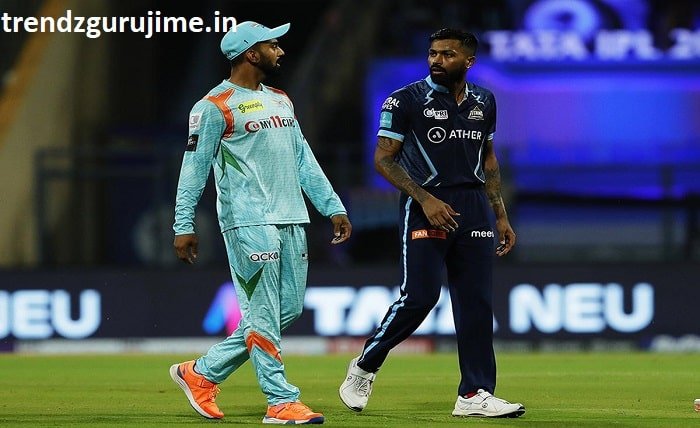One of the most significant moments in a cricket match is the toss, where the two captains meet with the match officials to determine who gets to decide whether to bat or bowl first. Fans and players alike eagerly wait to know who won the toss today, as it can significantly influence the outcome of the game. Whether it’s a Test match, One Day International (ODI), or Twenty20 (T20), the toss plays a crucial role in determining the strategy teams will follow throughout the match. In this blog, we’ll explore the importance of the toss, how it affects team strategies, and why it’s such an integral part of cricket.
1. What Is the Toss in Cricket?
The toss in cricket is a simple yet vital ritual where the captains of both teams meet at the center of the pitch with the match referee before the game begins. They use a coin toss to decide who won the toss today. The winner of the toss has the power to choose whether their team will bat or bowl first. This decision is often made after considering a variety of factors such as pitch conditions, weather, and the strengths of the opposition team. The toss, while seemingly straightforward, sets the stage for the entire match.
2. Why Is Winning the Toss Important?
If you’re wondering who won the toss today, you’re not alone. The toss can have a significant impact on the outcome of a cricket match. Winning the toss gives the captain the power to make a decision that best suits the team’s strengths or the match conditions. For instance, if the pitch is dry and likely to deteriorate, the captain might opt to bat first to take advantage of the good batting conditions early on. In contrast, on a green, seaming pitch under cloudy skies, the captain might choose to bowl first to exploit favorable bowling conditions.
3. Toss Strategies in Test Cricket
In Test cricket, who won the toss today can influence the strategy for five days of play. Traditionally, teams prefer to bat first in Test matches as the pitch tends to be best for batting early on, with the conditions deteriorating over time. However, if the weather conditions favor seam or swing bowling, such as overcast skies or a moisture-laden pitch, the captain winning the toss may opt to bowl first. The toss in Test matches often sets the tone for how the game unfolds over multiple days.
4. Toss Strategies in One Day Internationals (ODIs)
In ODIs, knowing who won the toss today is equally crucial. With a fixed 50-over format, teams often base their decision on whether to bat or bowl first depending on factors like dew, weather, and pitch conditions. In day-night games, the dew factor plays an important role, as a wet outfield can make it harder for bowlers to grip the ball. As a result, captains might choose to bowl first in day-night matches to avoid these challenges later in the game. The toss helps teams set a strategy for both batting and bowling in limited-overs cricket.
5. Toss Strategies in Twenty20 (T20) Cricket
The toss is especially important in T20 cricket, where games are often decided by small margins. Knowing who won the toss today in a T20 match can provide insight into the team’s approach. T20 captains often prefer to chase, especially when the pitch remains consistent throughout the game and the required run rate is clear. Additionally, in tournaments like the Indian Premier League (IPL), where conditions change rapidly, the toss can offer a significant advantage. Winning the toss in T20 can allow teams to execute their plans with precision and potentially alter the outcome of the match.
6. How Pitch Conditions Influence Toss Decisions
If you’re wondering why who won the toss today matters so much, the answer often lies in pitch conditions. The nature of the pitch can vary dramatically based on factors like weather, geography, and preparation. For example, pitches in subcontinental countries like India are known for breaking down over time, making batting difficult in the latter stages of a Test match. Conversely, pitches in England tend to favor fast bowlers due to swing and seam movement, especially early in the game. Captains who understand these conditions can use the toss to their advantage by choosing the best time to bat or bowl.
7. How Weather Affects Toss Decisions
In addition to the pitch, the weather plays a significant role in determining who won the toss today and how it will influence the game. Weather conditions such as rain, humidity, and cloud cover can significantly affect how the ball behaves. Overcast conditions can help swing bowlers, while dry and sunny weather may benefit spin bowlers. If rain is forecast, captains may opt to bowl first in limited-overs matches to take advantage of the Duckworth-Lewis method, a mathematical formula used to adjust targets in rain-affected games. Being aware of the weather allows captains to make smarter decisions at the toss.
8. The Psychological Impact of Winning the Toss
For many fans, knowing who won the toss today provides insight into the psychological aspect of the game. Winning the toss gives the captain and team an immediate sense of control and advantage, allowing them to dictate the early stages of the match. This psychological edge can be crucial, especially in high-pressure games or knockout stages of tournaments. On the flip side, losing the toss may force teams to adjust their pre-game plans, creating a mental hurdle to overcome. The toss not only influences tactics but also the mindset of the teams involved.
9. Famous Toss Decisions in Cricket History
Throughout cricket history, there have been several memorable moments when who won the toss today played a pivotal role in the outcome of matches. For instance, in the 2003 Cricket World Cup final, Indian captain Sourav Ganguly chose to bowl first after winning the toss, a decision that proved costly as Australia posted a massive total. Similarly, in the 2019 ICC World Cup final, England’s decision to bowl first helped them limit New Zealand to a manageable score, setting the stage for a thrilling victory in the super over. Toss decisions can often be the difference between victory and defeat in cricket.
10. The Role of Toss in DRS and Umpire Calls
Winning the toss also plays an important role in how teams approach their Decision Review System (DRS) calls and overall game management. Knowing who won the toss today can give insight into whether a team will be more aggressive with reviews if they are bowling first or conservative if they are batting. Umpire calls also come into play with marginal LBW or caught-behind decisions, especially early in the match. Teams that win the toss and opt to bowl may use DRS tactically, knowing that early wickets can shift the momentum of the game in their favor.
Conclusion
The toss in cricket is far more than just a coin flip—it is a strategic element that can shape the entire course of a match. Whether it’s a Test, ODI, or T20, who won the toss today can provide a crucial advantage, influencing decisions on batting, bowling, and fielding. Understanding the conditions, pitch, weather, and psychological implications allows teams to optimize their strategy. While the toss does not guarantee victory, it plays a key role in setting the tone for the match. As cricket continues to evolve, the importance of winning the toss remains as crucial as ever.
FAQ
1. Why is the toss so important in cricket?
The toss is important because it allows the winning captain to decide whether to bat or bowl first, based on pitch conditions, weather, and team strengths, influencing the match strategy.
2. Does the toss guarantee a win?
No, winning the toss does not guarantee victory, but it provides a strategic advantage. Teams still need to execute their plans to win the match.
3. How does the toss impact Test cricket?
In Test cricket, the toss is crucial because the pitch conditions tend to deteriorate over several days, making it advantageous to bat first when the surface is in its best condition.
4. What role does weather play in toss decisions?
Weather plays a significant role in toss decisions, as conditions like cloud cover, rain, and dew can affect pitch and ball behavior, influencing whether teams choose to bat or bowl first.
5. Can teams appeal or review a toss decision?
No, the result of the toss is final and cannot be appealed or reviewed. The decision made by the winning captain regarding batting or bowling is also binding for the match.





